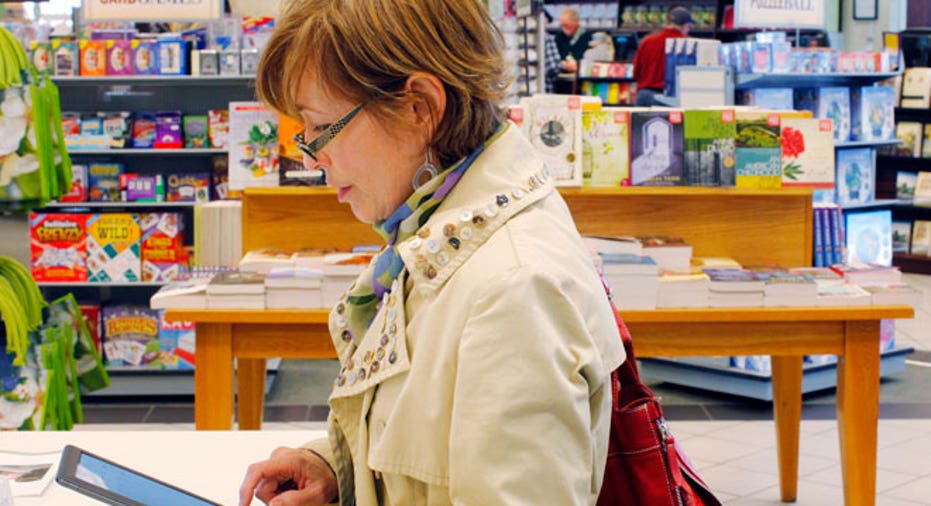Report: Barnes and Noble Looks to Expand on Campus

Barnes & Noble Inc (NYSE:BKS) is turning to its college roots to boost its top line.
The U.S. bookseller, which opened in 1965 as a university bookstore in New York, wants a much bigger presence on college campuses, where students last year spent an average of $1,200 on textbooks and supplies, according to the College Board.
Barnes & Noble, now the second largest operator of college bookstores with 696 shops, plans to have about 1,000 locations within five years, Max Roberts, chief executive of the company's college business, said in an exclusive interview at Rutgers University's bookstore in New Brunswick, New Jersey.
It intends to do that by getting more schools to outsource their bookstore operations with the lure of nicer, higher-grossing stores and by poaching accounts from larger rival Follett Corp, which runs 940 stores.
Success isn't a slam dunk: About 45 percent of U.S. colleges still run their own stores. And overall college store sales have stagnated in recent years at about $10 billion, according to the National Association of College Stores.
The push comes as Barnes & Noble is mulling selling itself and needs new sources of revenue because of sluggish sales at its traditional bookstores and a shrinking Nook digital unit.
Roberts said the company's retail skills and ability to offer large-scale textbook rental programs, a growing part of college retail, generate higher sales per store, a benefit for schools, which get a percentage of sales rather than rent.
"We want to make our stores the center of the community, and appeal to other consumers, not just students," said Roberts, who earlier in his career worked at R.H. Macy & Co.
Barnes & Noble is trying to go beyond the usual campus stores by offering amenities like bigger cafes, a larger selection of clothing, and in some stores, Clinique cosmetics counters, which are especially appealing to international students looking for gifts to bring home.
The Rutgers store is an example of the "academic superstore" concept Barnes & Noble thinks it can eventually bring to 75 college stores, compared to 35 now. These superstores are about 30,000 square feet, a size more typical of a traditional Barnes & Noble store than a college store.
TOUGH SELL
The college unit, which Barnes & Noble bought in 2009 from its founder, Leonard Riggio, last year generated about $1.77 billion in sales, or 25 percent of the company's total, and overtook the main business in terms of store count in 2013.
The college chain is part of Barnes & Noble's Nook Media subsidiary, in which Microsoft Corp <MSFT.O> has a 17.6 percent stake and education company Pearson PLC <PSON.L> has 5 percent.
Barnes & Noble added some 50 college stores in the last two years. Reaching the 1,000-store mark will mean winning over many holdouts among the some 1,500 college stores that remain independent.
"The low-hanging fruit has largely been picked," said Ed Schlichenmeyer, deputy CEO of the National Association of College Stores. "They stay independent because they feel a need to be adaptable to faculty, and increasingly, student demands."
Some big-name holdouts include University of California, Los Angeles, and the University of Southern California.
Still, Maxim Group analyst John Tinker said that even if the expansion goes more slowly than Roberts expects, it will improve the company's odds of fetching a good price if it splits itself up or sells itself.
"Barnes & Noble's bookstores are not a growth story," Tinker said, noting why the college push is so important.



















